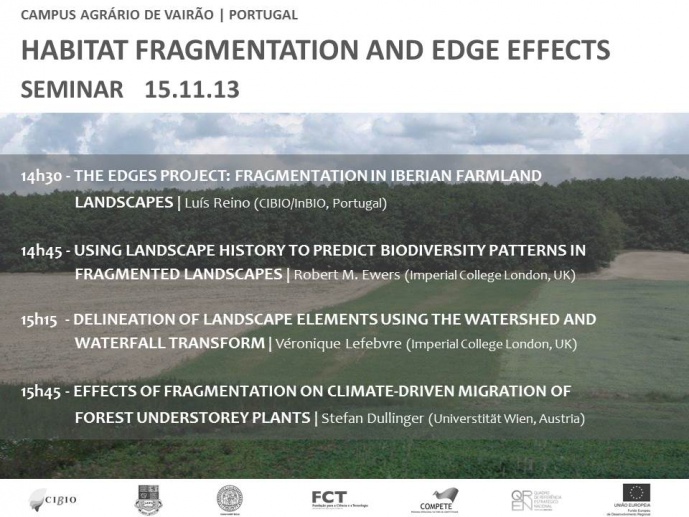HABITAT FRAGMENTATION AND EDGE EFFECTS


About THE EDGES PROJECT
Edge effects are important processes affecting biological populations and communities in fragmented landscapes, and mediating landscape-scale patterns of species richness and abundance. Intense research over the past decades has demonstrated that edge-responses are species-specific, although there is often major intraspecific variation in relation to factors such as edge characteristics and landscape context. However, in addition to a lack of quantitative tools to describe the ecological scaling of edge responses, little is understood about the mechanisms underlying this variation in species responses to habitat edges in relation to other ecological variables. These limitations compromise the extrapolation of local edge responses to landscape models, ultimately preventing the prediction of the consequences that land use changes may have on the persistence of species assemblages in fragmented landscapes.
To fill this gap, the Edges Project seeks to analyse how and why responses to wooded edges by open farmland birds are scaled by other ecological variables, through the combination of observational, experimental and modelling approaches. In this project, ecologically scaled edge response functions will be developed and used to test whether or not variation in species-specific responses across regions and landscapes can be ascribed to the effect of local and landscape variables. Different mechanisms influencing the presence of ecologically scaled edge responses will also be analysed, Furthermore, land use information and ecologically scaled edge response functions derived at local scale will be integrated to predict the consequences for species abundances and distribution at biogeographic scale under different land use scenarios. This way, the project will allow to gather much needed information for agricultural land planning, which, given the current trends for afforestation and scrub encroachment in arable landscapes, is of particular importance for the conservation and management of fragmented landscapes.
Image credits: Luís Reino